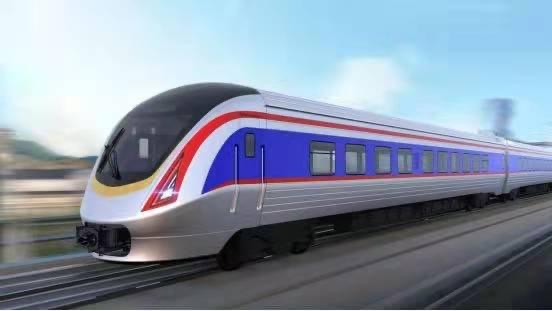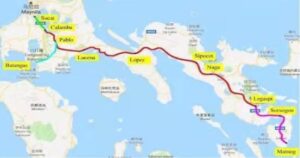
- The P142-billion contract for the first phase of the PNR Bicol railway project was signed on Jan 17 by the Department of Transportation with Chinese companies
- The first phase consists of 380kms from Banlic, Calamba to Daraga in Albay
- When fully complete, the 565km project will connect Metro Manila to Batangas and to as far as Sorsogon
- Travel time will be cut from 12 hours to just 4 hours
- Passenger trains will run at a speed of up to 160 kilometers per hour, while freight trains will run at a speed of up to 100km per hour
The Department of Transportation (DOTr) on Jan 17 signed a P142-billion contract for the first phase of the Philippine National Railways (PNR) Bicol, also known as the PNR South Long Haul, Project.
In a statement, the DOTr said the design-build contract was signed with the venture of China Railway Group Ltd., China Railway No. 3 Engineering Group Co. Ltd., and China Railway Engineering Consulting Group Co. Ltd.
Covering 380 kilometers of a total 565km railway project, the first phase spans Calamba City in Laguna to Daraga town of Albay and will span 39 cities and municipalities, 4 provinces, and 2 regions. It will involve construction of 23 stations, 230 bridges, 10 passenger tunnels, and a 70-hectare depot in San Pablo, Laguna, according to DOTr.

The entire 565km segment will connect Metro Manila to Batangas and to as far as Sorsogon.
Once fully operational, the railway project will cut travel time between Metro Manila and Bicol from the current 12 hours by road to four hours.
Passenger trains will run at a speed of up to 160 kilometers per hour, while freight trains will run at a speed of up to 100kms per hour.
The railway will serve up to 14.6 million passengers annually. It is expected to create more than 10,000 direct construction jobs each year and hundreds of thousands of jobs in related areas by driving the economic growth along the line, DOTr said.
“The $2.8 billion railway, one of the flagship projects under President Duterte’s ‘Build Build Build’ program, is so far the highest-funded [government to government] project between our two countries,” Chinese ambassador to the Philippines Huang Xilian said in his Facebook account.
The Mindanao Railway project and Subic Clark Railway will also be funded by Chinese loans.
China-funded loans
For China ODA projects, DOTr undersecretary for railways Timothy John Batan explained the contract comes before the loan in contrast to other ODAs where the loan comes first before the contract. Batan said the contract for PNR Bicol “does not become effective until the Loan Agreement with China becomes effective.”
Moreover, for China-funded contracts Batan said the government requests a shortlist of contractors from the Chinese government that will participate in the bidding. After procurement and contract signing, DOTr requests the Department of Finance (DOF) to apply for a loan with China to finance the signed contract.
Batan said generally, China may finance up to 85% of the contract amount, with the balance to be funded by local counterpart budget. The final terms of the loan, including the percentage that will be financed by China, will be subject to loan negotiations by DOF.
After DOF successfully negotiates the loan, DOF signs the loan agreement with China.
(This article was revised on Jan 19, 2:07pm, to include information on China-funded loans.)




